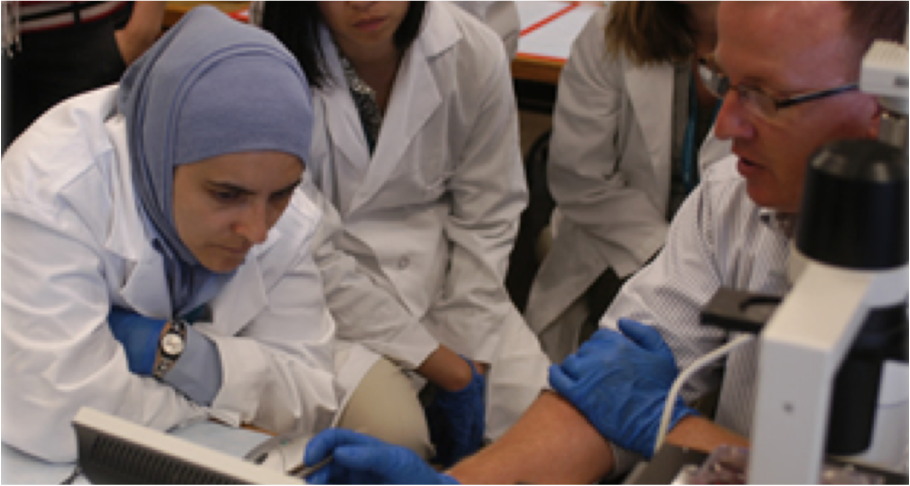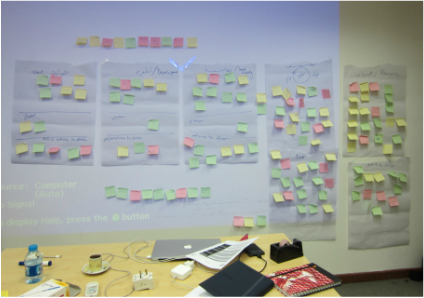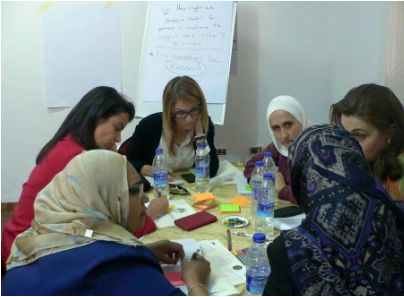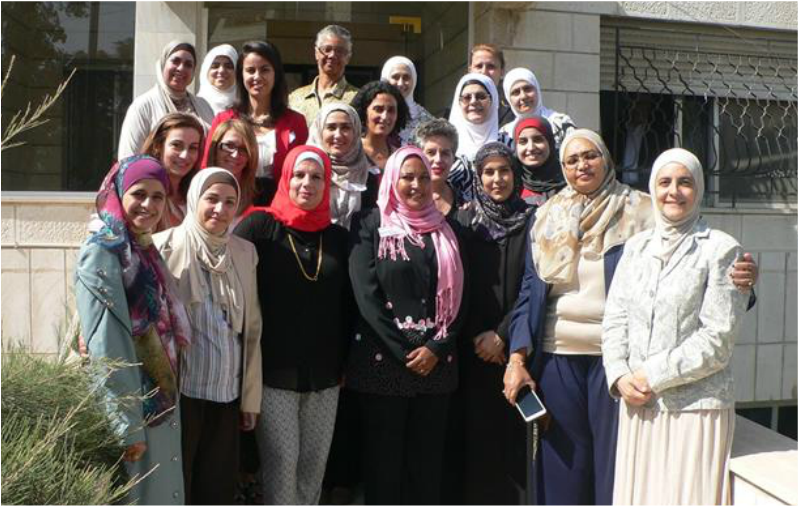Networks Capacity Building
Have you ever written a grant?
|
I posed this question to a professor at a university in Jordan. The answer was no. This led me to start exploring the reasons behind this and how to resolve them.
Why do we study for a PhD? Is it for a certificate, prestige, a job or money? Or is it because we are thrilled by science: we want to be the discoverers and pioneers who push the boundaries of science and knowledge, to explore the unknown and contribute to humanity to find solutions? Obtaining a PhD is not the goal or as some assume, the end. The objective of obtaining a PhD is to gain the training to become a scientist who can strike out on his or her own to create their own niche in the scientific arena. The PhD trains you how to think, design experiments and be critical. Many scientists from developing countries who study in developed countries go back to their countries to face the challenge of creating a lab in their own field. In many instances this means shifting to a new field because of cost and technical restraints of conducting research in the field of their PhD. This is fine because the PhD stage is about training to be a scientist in any field. Due to the lack of scientific research facilities and technical personnel in research institutions in developing counties, many fresh graduates-in order to conduct research and keep up with publishing- go back to their alumni institutions to do research during the summer. This is not problematic at the individual level, but issues arise at institutional and national levels. The role of the scientist
is not only to conduct research but also to build a research community and environment, which can only happen if there are lab facilities as well as actual research being conducted at the institution. How does a fresh PhD graduate establish a lab in his or her institution? The general steps are: writing grants to obtain funding for equipment, materials and personnel, managing the lab and finally strategic planning. The PhD training that the majority of students receive does not include how to establish a lab. These skills are usually learned during the post doctorate stage where PhD graduates work in a lab, write and manage grants and learn to think strategically. Unfortunately, most PhD graduates from developing countries do not go on to complete a post doctorate because the institutions expect them to return immediately after the PhD and begin work in their home institutions. In addition, the research institutions in most developing countries do not include receiving a grant as a requirement for promotion. Therefore the majority of full professors in these institutions have never actually written a grant.
In order for scientific research to advance in developing countries, institutions should train scientists on essentials such as writing grants, managing the lab and strategic planning, as well as introducing grants for promotion as an incentive. If research scientists acquire these skills, receive grants and establish their own labs, it is likely they will start publishing their own research as senior authors and consequently develop a strategy for their research niche. Thus, they will be better able to establish themselves as experts in their particular field. Scientists around the world will become familiar with their work and perhaps approach them for their knowledge and expertise in order to build collaborations and consortia (1). An example of this is the niche that I created after finishing my PhD; my research during my PhD focused on signaling transduction and immunology. After returning to Jordan, conducting such experiments was almost impossible due to technical and sustainability issues. Therefore I had to forge my own niche in the scientific ecosystem that was of international quality yet also feasible to conduct in Jordan from a practical standpoint. As a result, I shifted my research field to the genetics of ethnic populations in Jordan. My PhD training had equipped me with the necessary tools and skills to explore this new field. Consequently, my lab is the world expert on the genetics of diabetes within the Circassian and Chechen ethnic groups (2). On top of this, I was able to get funding of a quarter of a million dollars for my research . The philosophy or approach that research institutions should adopt in order to succeed and compete on the international arena is to build and invest in individuals rather than institutions. The individual is the commodity of the university; both faculty and students who later become alumni. Similar to any business, there needs to be an understanding of a product: how to improve it and promote it. We know from practical experience that neither lack of funding or ideas is an issue for research in Jordan. The issue is instead creating an environment that supports freethinking and responsibility, with accountability at every level of the institution. Surprisingly, we found while researching percentages of female scientists in academia in Jordan that, relative to their abundance in academia, women have a higher percentage in winning grants than their male counterparts despite the multiple roles they perform professionally and personally (3). In an attempt to provide opportunities and support for academics in general, and females in particular, we have started a women in academia mentoring network that aims to create a new generation of female scholars. Our mentoring project is called
“Three Circles of Alemat" " (Alemat; Arabic for female scientists). In conclusion, I would say that the success of the individuals at the university is what creates the reputation of our universities. I always tell my students if you succeed and become internationally acknowledged, people will ask which university you graduated from and slowly your university will be known to produce intelligent, successful graduates in their field. Therefore it is up to the individual to create who they become and to build their countries. |
2016
Rana Dajani |
References
1. Dajani, R. World view: The Arab spring offers hope but no quick fix. Nature,477:7. doi:10.1038/477007a (2011)
2. Dajani, R. et al. CNV Analysis Associates AKNAD1 with Type-2 Diabetes in Jordan Subpopulations. Sci. Rep. 5, 13391; doi: 10.1038/srep13391 (2015).
3. Dajani, R. and Bani-Hani, K. ‘Female education and workforce trends in health-related disciplines in Jordan’o Nature Middle East Dec 22, doi:10.1038/
nmiddleeast. 2014.285 (2014)
1. Dajani, R. World view: The Arab spring offers hope but no quick fix. Nature,477:7. doi:10.1038/477007a (2011)
2. Dajani, R. et al. CNV Analysis Associates AKNAD1 with Type-2 Diabetes in Jordan Subpopulations. Sci. Rep. 5, 13391; doi: 10.1038/srep13391 (2015).
3. Dajani, R. and Bani-Hani, K. ‘Female education and workforce trends in health-related disciplines in Jordan’o Nature Middle East Dec 22, doi:10.1038/
nmiddleeast. 2014.285 (2014)



